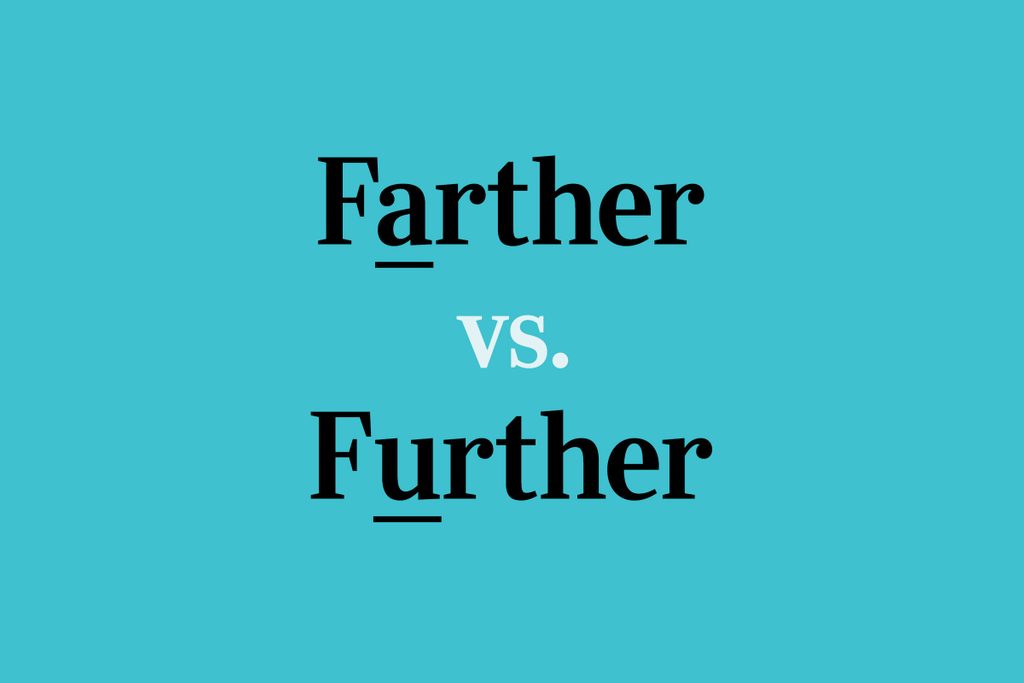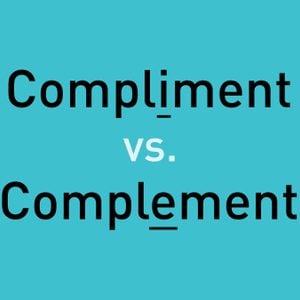Farther vs. Further: What’s the Difference?
Updated: Feb. 07, 2023

How far would you go to figure out the difference between further and farther? Look no further—we've got your answer.
If you’re anything like me, when faced with a choice between farther and further, you just guess. You choose whichever one sounds better in context. The words seem similar enough, just one little letter difference that can easily be breezed over in conversation. Maybe the difference is important (another than vs. then situation) or maybe it’s just one of those things no one really knows. They seem almost interchangeable, but is there actually a difference in meaning?
No matter how confident you may be with your knowledge of the English language, farther and further will likely give you a second of pause. Though you may think you know the difference, the actual rule might surprise you. You could be have been the wrong one all this time—but look no further!
What’s the difference between farther and further?
To put it simply, the separation lies in the difference between a literal distance or goal and a metaphoric one. According to Merriam-Webster, “farther refers to a physical distance and further to figurative distance.” This means that further mostly encompasses metaphorical lengths and goals while farther speaks to literal distance and extent. In practice, the correct usage might initially sound troublesome by ear (i.e. “how much farther?” instead of the colloquial “how much further?”). Popular advertisements and classic literature often use them interchangeably and incorrectly. Just another one of those words you might accidentally be using wrong.
One crucial difference between further and farther is the part of speech which allows for a subtle difference in definition. Further, for instance, can be used as an adverb, adjective, or verb. Merriam-Webster defines further in each part of speech, respectively, as meaning “to a greater extent,” “going or extending beyond,” and “to help forward.” These ideas are more tied to the metaphorical, as in going beyond an idea or extending past expectations or realities. It’s helpful to think of the verb form of “further,” as you are nearly always furthering a goal, mission, or thought—all less concrete and non-tangible concepts.
Farther, on the other hand, can only be used as an adjective or adverb. It specifically means “to a greater distance” or “greater degree.” One way to remember the difference between farther and further, according to Grammar Girl, is that farther has the word far in it. Additionally, the word further has a “u” in it, just like the “u” in the word unreal.
Helpful examples
The difference can be murky (common misconceptions often are) without a few examples. To start, imagine you are considering where to park on an overcast day. You are debating the pros and cons of parking close to, or a few streets down from, your destination. On one hand, you might be tempted to walk a little farther to avoid parallel parking. If you do, while walking toward your destination, it may finally begin to rain. In your irritation, you could be left wondering how much further you’ll be pushed today of all days.
Farther examples:
- The distance from the current position to the final destination
- “Will it be much farther?”
- “I can run farther and swim faster than my brother.”
- “This seems much farther away than you said it would be!”
- The extent of something
- “I don’t know how much farther you’re willing to go, but the bus stop is only a few miles away.”
- “I couldn’t possibly have moved farther away from him if I tried.”
Further examples:
- The metaphorical distance or extent
- “Everyday we stray further and further from my mother’s good graces.”
- “I can’t let this go on any further—I don’t love you anymore.”
- “Can you explain further?”
- Continuing onward or helping forward
- “Further, I must stress that I am the only qualified applicant.”
- “I don’t mean to embarrass you further, but everyone should know it’s your birthday!”
- “Usually, I wouldn’t hesitate to further your candidacy, but you are my grandmother. That is a conflict of interest.”
Next up, refresh your memory with the difference between affect and effect.


